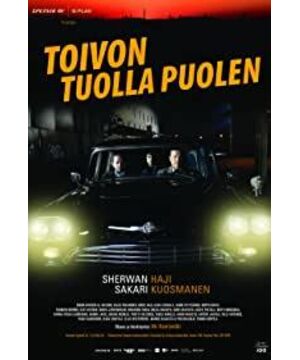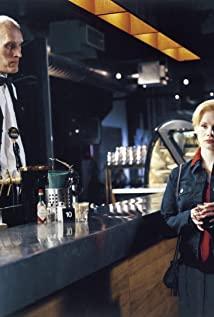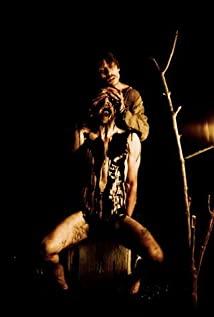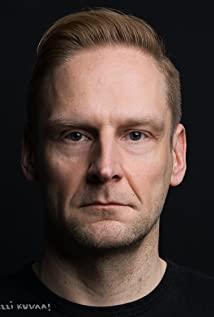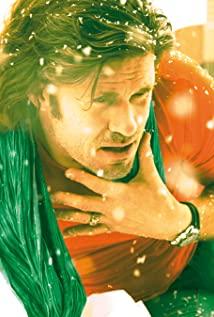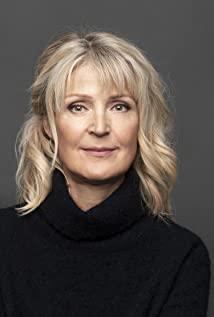In 2015, a refugee crisis broke out in Europe. In just one year, the number of new illegal immigrants in Europe reached 1.5 million, more than the sum of previous years. Nearly one million refugees from the Middle East and Africa have left their homes, waiting for their asylum applications to be approved in a foreign European continent. Their lives are embarrassing, and what awaits them is a winter-like future.
The influx of refugees has brought heavy economic and social pressure to European countries, and has caused huge differences within the European Union. European countries are swaying between national conditions and humanitarianism, coupled with frequent attacks in various places, the cooperation process has been repeatedly interrupted. The originally open and inclusive integration pattern has fallen into a quagmire. Border control has been strengthened; the society and culture that were originally open to European people have gradually become xenophobic, and community conflicts have continued. Although the refugee tide dropped significantly in 2017, a large number of refugees are still living in dire straits. Today, the refugee tide sweeping across Europe is still a sensitive and helpless topic.
There are not many directors in the world who, like the Finnish geek Aki Kaurismaki, are bold enough to make jokes about the refugee tide. The film took place in the context of such a tense refugee crisis. The film portrays the bitter experience of refugees in the chat and laughter, and also brings a surreal sense of absurdity to the world. In this film, Aki swayed his unique cold humor to the fullest.
The film tells the story of the Syrian youth Khalid who smuggled to Finland to seek political asylum in order to escape the war. He hit a wall and was repatriated as soon as he landed ashore. So Khalid decided to escape from his life with "My life is my life," and when he was living on the street, he ran into the desolate owner Vicstrom, who had just left a restaurant with his alcoholic wife and bought a restaurant. The story of two people who are both in the same world but do not know each other but stumble and support each other, hoping to get a new life.
The whole movie clearly tells the story of a sad and heavy refugee, but when you watch the characters make fun under the weight of life, you can't help laughing and crying. There seems to be a glimmer of dawn in the tragic atmosphere and disappointing humanity that is ubiquitously revealed in the background, just like the name of the film.
Aki uses otherworldly absurdity to portray a sad refugee story into a humanitarian comedy. The story absorbed the thoughts of the refugee wave, embraced the story with incredible ease and simplicity, but did not destroy its seriousness in any way. Compared with simply depicting the miserable lives of refugees, telling stories in this way is obviously more difficult and more appealing.
For those who have never seen an Aki movie, here is a little guide: He once commented on himself as "the best filmmaker in the world, but the worst film he made." Compared with traditional filmmakers, Aki is very different. He redefines the concept of minimalism. The protagonist in his film is usually a poor, fallen, oppressed person, and then find some little comfort in the corner of life.
His movie is a model of minimalism: no expressions, no special effects, no car chasing, no loud voice, the characters just walk around on the screen, expressionless and not surprised, it seems that it is just a machine with no emotions. Not only that, in his movies, it seems that the slight movement of the lens is a luxury. It is this kind of no-superfluous picture that brings a kind of wisdom to see through the world, and a sense of boredom with the harshness of the world. The slight comedy effect in the film is relaxed but unpredictable. Perhaps every audience is puzzled by the semi-indifferent characters in the movie, but they still insist on unstoppable.
Finland, where the film is located, seems to put a forgiven label on the "indifferent faces" of the people in the film. Remember the autistic attributes of the Finns who went out of the circle before? The unsentimental robot interpretation in the film fits perfectly with the inherent autistic nature of Finns.
In the cold wonderland of Finland, in order not to come into contact with strangers, people used great power: the distance between the bus stop and the flow of people is two meters; the single chair with full distance in the park...like everyone's mind There is a "keep distance" program input. Finns always choose to be a few meters away from others by appointment. Many foreigners are also surprised and interesting at the introverted Finns.
Seeing this, you might think, refugees cannot feel warm in Finland! But looking at it, it seems that you understand the kind of feelings that people sympathize with each other under the extreme cold of the Arctic Circle, cold outside and hot inside.
The film consists of two main lines: a refugee from Syria, who asked for asylum in Finland, where he was not familiar with his life, was frustrated by the bureaucracy; a middle-aged man who lost his family and used poker money to enter the restaurant Industry, but he's doing a lot of hell cooking, and the restaurant is in a mess.
The director carefully arranged such absurd and ridiculous experiences of two kinds of people, which seemed to be two independent stories. However, their common miserable experience made us have a sympathy for the two of them. This light touch makes us believe that the two parallel lines will eventually meet one day.
Unsurprisingly, when Khalid was very politely rejected by the immigration office, he began to abscond. When I was living on the street, I met a boss who came out to take out the trash, vying for the ownership of the trash can. The two people who were both in the end of the world did not know each other. After a stumble, they accidentally supported each other, hoping to live a new life. Quiet street corners, blues ballads soothe the lonely heart of the little people, the dim garbage dump, cold-faced and enthusiastic people stretch out a helping hand, and laugh at the ruthless bureaucracy together.
Wickstrom's restaurant looks like a terrible place to eat, especially when the owner decides to transform it into a sushi restaurant-the mustard paste thicker than fish fillets keeps people leaving. But it is still a utopian place for the boss and Khalid, a weird republic that is incompatible with chasing them and playing mahjong outside. The daily life here brings a sense of belonging to the home that these two ailing people have never experienced.
This seems to correspond to the deep and subtle joke of Mazak, a friend in the shelter at the beginning: Finland will expel melancholy people, but don't be deliberately happy. Finland is a country full of fatigue and perseverance that has experienced extreme nights and cold winters. People from Finland often say that Finland is very depressed in winter. They hang their faces behind the stove in the house, eating plain food or cod soup. Maybe Mazak is right. The government hopes to accept optimistic immigrants and bring them the necessary joy. At the end of the film, Khalid, bearing the sorrow of repatriation, has found his home. Such a contradictory and balanced personality brings some special colors to such Finland, right?
Returning to the director of this film, he is not so much a filmmaker who is willing to use black humor, but he is an observer who satirizes the weakness of the country with a smile, and a man with a firm conscience who excavates the good of society in the dark. As Khalid has experienced, Helsinki also has its dark side: he has been attacked by racism and has been blocked by bureaucrats. However, he also encountered the kindness of ordinary Finns that is not sentimental, even a little reluctant, in such an environment. When he told Mazak that he had fallen in love with his new home, we could all understand why.
This is not a naive story about struggle and perseverance, on the contrary, it is true and ingenious. It is this kind of praise for the beauty of human nature in the dark that makes hope appear on the other side.
View more about The Other Side of Hope reviews


